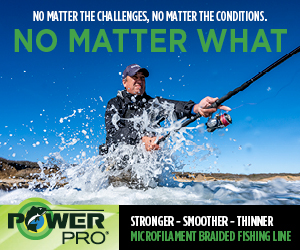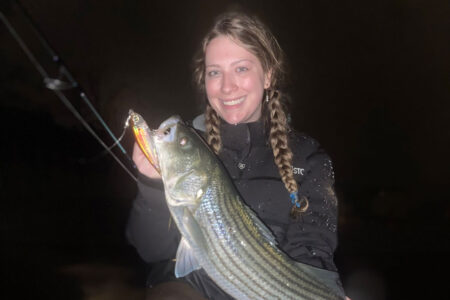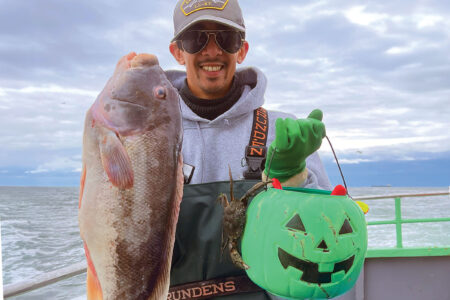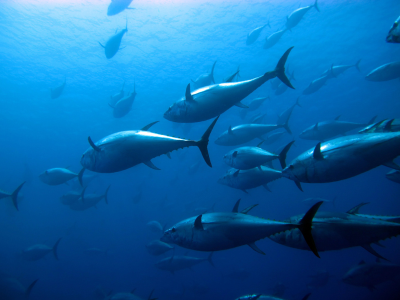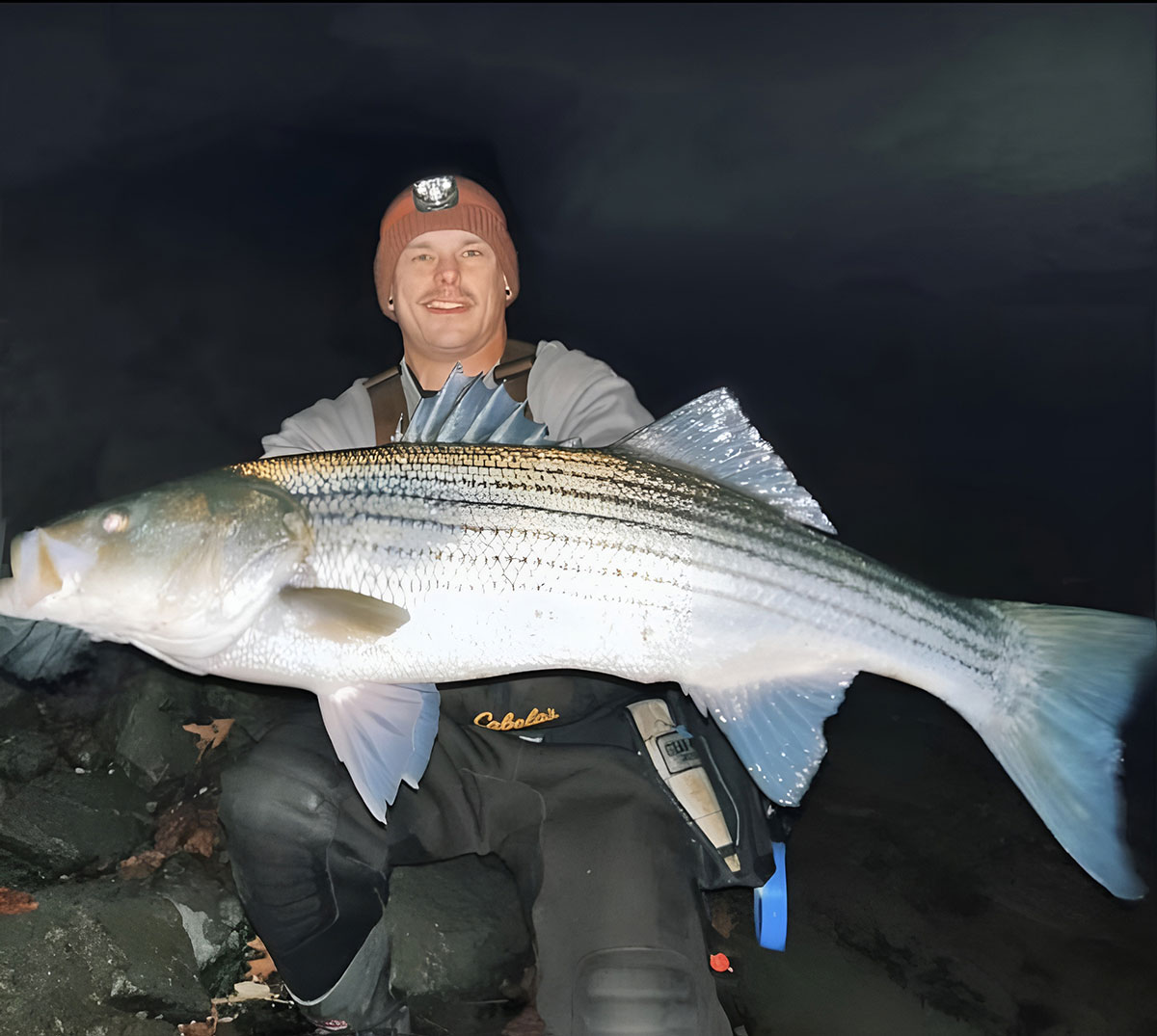
Planning ahead will lead to greater success in the surf.
If you’re a surf fisherman, I’m sure you’ve had to try to explain to a non-fisherman what it is that you love to do. The first assumption, is that you impale some bait on a hook, cast it out and wait (or hope) for a bite. Oftentimes they may ask something like, “is it even really possible be good at fishing, isn’t it all based on luck?” This question used to frustrate me, probably because of the countless hours I’ve spent obsessing over locating more and bigger striped bass from the surf. Maybe I felt as though my efforts were unappreciated or unacknowledged. But then I started to look at it differently, and realized that luck – in fact – does play a large role in an individual’s success in the surf.
That being said there are many things that an experienced surfcaster does to maximize their time spent fishing and, one might say, “create their own luck”. So in a sense a sharpie from the surf amongst other things is very good at putting themselves in positions to get “lucky”. Game planning, preparation, and maintaining a positive attitude can increase your odds of success, not only during your next outing but throughout an entire season…and beyond.
Game Planning
Roman philosopher Seneca was quoted as saying, “Luck is when preparation meets opportunity”. Since as long as I can remember, even biking to farm ponds when I was a kid, I was always the one who went in with a game plan. For whatever reason, I always trusted myself and my plans more than relying on someone else to do that part for me. For me, a game plan that I created thoughtfully around tides, recent outings, winds, surf, bait availability, or any other factors I think are relevant in the moment, sends me out there with a positive attitude and a feeling of confidence when attacking the water. Self-confidence is a huge key to success in all aspects of life, and I learned at young age that creating a purposeful game plan takes care of the “casting without confidence” part of the equation. So here’s the basic framework of how I create a game plan for a typical night in the surf.
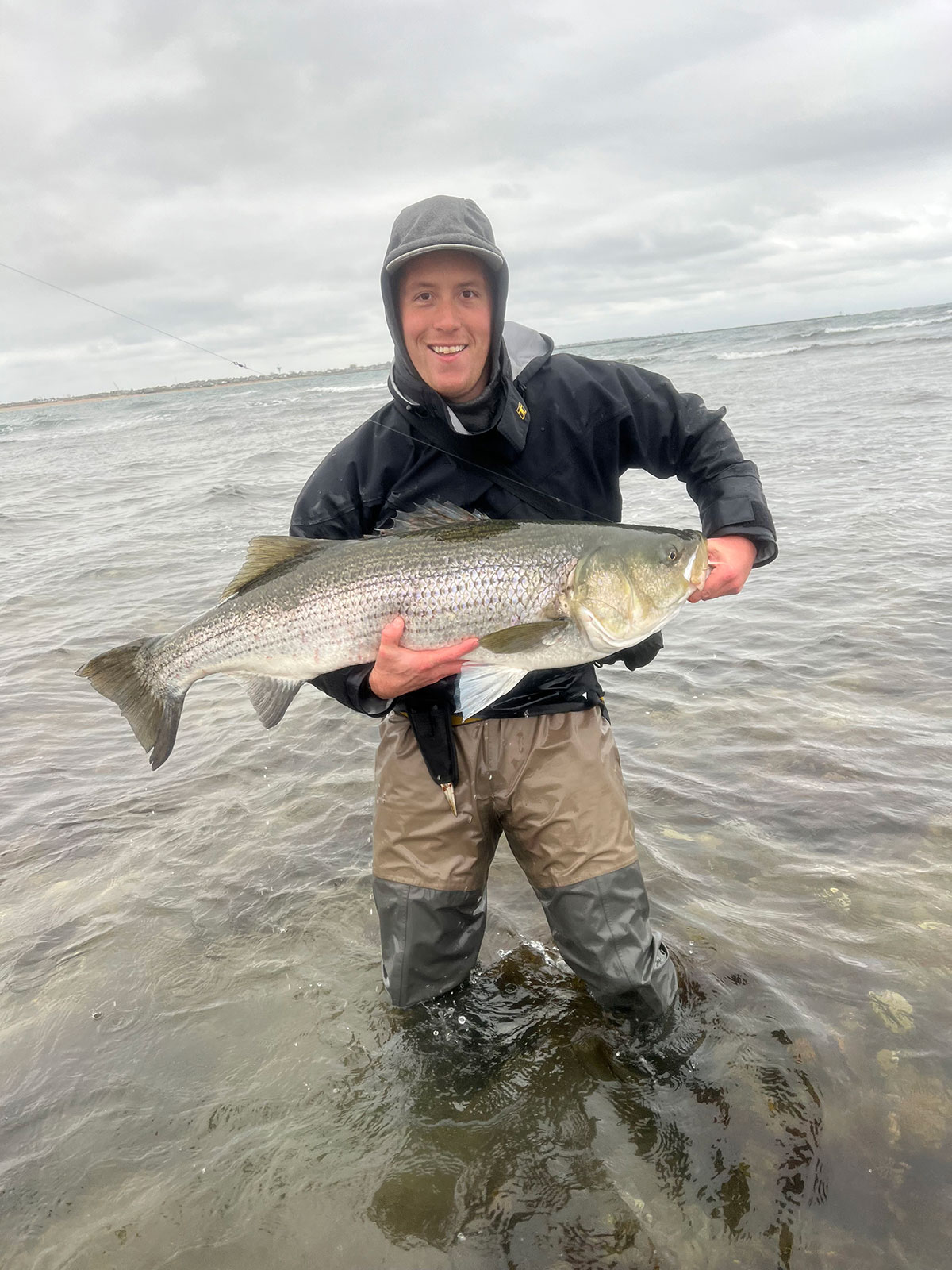
The “Main Hitter”
Typically when committing to an outing in the surf I am prepared to fish throughout a tide (6 hours or so). So my first step in creating a game plan for the night is checking the conditions. The first thing I check is the tide chart. Through experience and building your list of spots you will amass many that are “tide dependent”. In other words, you will begin to understand which spots produce best at which stages of the tide. And hopefully, that list will expand to include spots that cover the entire tide cycle – high and low, incoming and outgoing. Based on the time I am fishing, I will identify one spot to focus on that lines up with the ideal tide to fish it. This what I call my “main hitter,” and it’s not always the first spot on my list because I want to focus on it during that specific tide which I know it is most productive. So I will also make a list of bonus spots to hit before and/or after the “main hitter”.
Bonus Spots
After identifying my “main hitter” based on an ideal tide that I want to fish this spot I will start to build the rest of my game plan around that spot. So let’s say my “main hitter” is a spot that produces best on low water. A spot like this may be a sand bar that is only exposed on very low tide. Now let’s say low tide is at midnight, but I plan to start fishing around 9 p.m. I will then pick several spots to check prior to my “main hitter” that are primarily outgoing tide spots. These spots I can get to right around 9 p.m. and it’s the ideal tide to fish them since the “main hitter” spot is one I cannot access until the water comes down. I will call these spots “bonus spots” and typically will pick two or three to have on a list just in case the first several don’t work out.
Best Laid Plans
We have all been there, you go out with a plan in mind, only to pull up and find the lot full of vehicles. Your heart sinks, your mind races. There are a few ways you can handle this situation; you can go bump shoulders with the crowd, you can sit in the parking lot using Google Earth to try and pull off a miracle or you can pull out of that packed lot with a Plan B already loaded into your GPS thanks to your pre-trip preparations. I’ll take number three every time. Honestly, when I see the first spot on my list is filled with people I get more excited because it’s likely no one is at my backup spots and I am quickly on my way. This not only eliminates the wasted time and stress you might feel while trying to develop a backup plan on the fly, but it keeps your attitude and mind focused on the simple goal of catching fish.
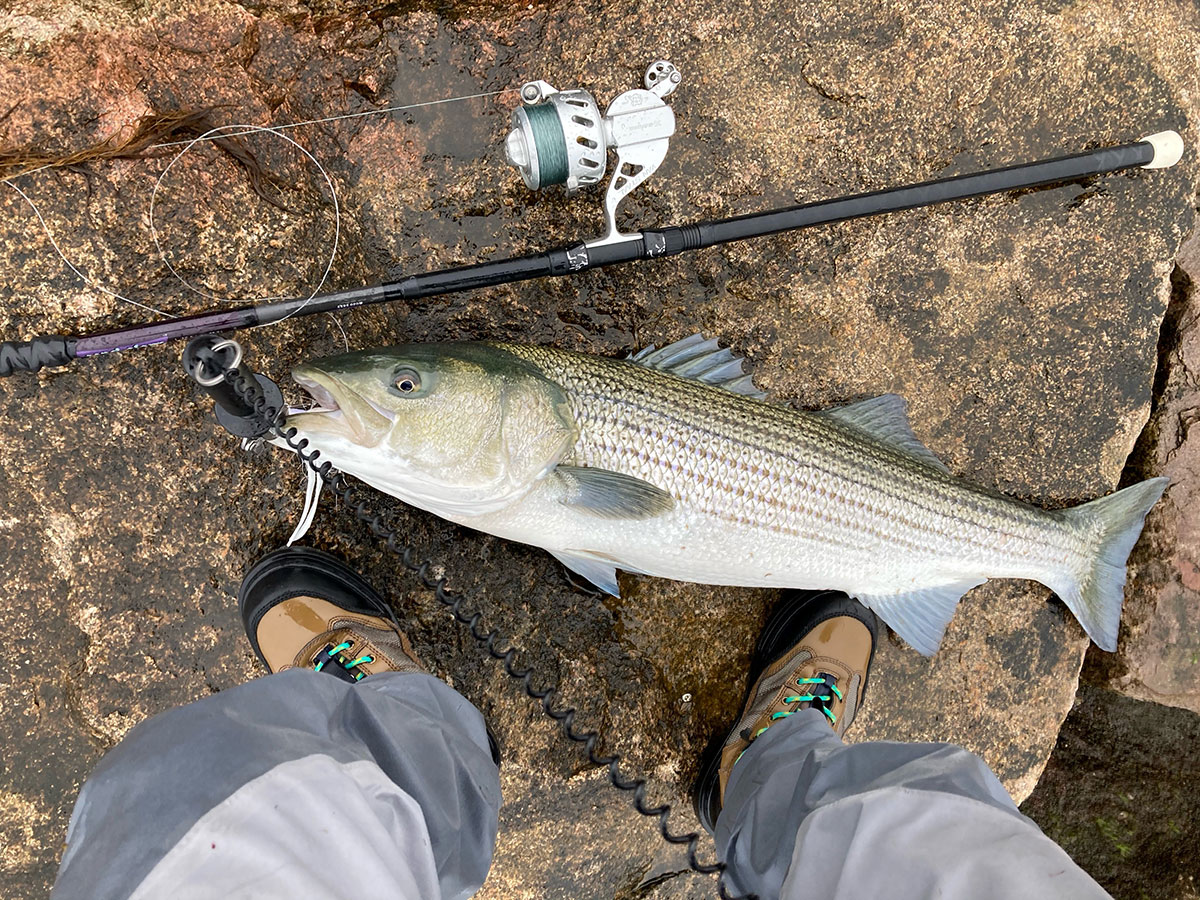
New Spot Checks
Checking out new spots is just as important as fishing with a game plan, so when I’m forming my plans, I am also allotting time to check new water. Many times these spots fit into my plan between perfect tide windows of known hotspots. I am always looking to grow my personal rolodex of high probability surf spots, so I check new spots a lot. This also keeps things fresh and just might result in finding a new spot that hasn’t been discovered by the masses. Several of my “new spot checks” have proven to be the best stops on the night and I have had a few that resulted in absolute mayhem and unforgettable surf sessions.
One of the best happened about four years ago in the spring. My buddy Bryan Testa and I planned to fish all night, going along with our game plan, we hit several bonus spots and our main hitter that night with no luck, not even a sniff. We still had a couple hours of dark left so we decided to do a couple “new spot checks”. The first being a wicked sandbar I identified on Google maps. It was a full moon and dead low tide and there were not many places that were fishable close by, thanks to the extreme tides. We picked this bar figuring we could walk it out as far as we could and might be able to hit good water. After what felt like hours of trekking through the knee-deep water on the sandbar we finally reached the end, it felt like we were standing out in the middle of the ocean. Without even saying word, it was clear that it was going to be ‘on’!
Within just a couple of casts I heard Bryan call out, “I’m on, it’s a good one!” I hear his drag peeling in the distance through the fog and as soon as I can get excited for him, BAM, I was on a good fish too. We fished that “new spot check” until the tide chased us off the bar and it ended up being one of the best and most unforgettable nights of my life in the surf. Bryan and I both ended with five or six fish, each of them super-aggressively feeding cows in the 30- to 40-pound range. Long story short, if it were not for preparing for the night by creating a thoughtful and focused game plan it is very unlikely that we would have found those fish or that spot. So our game plan really paid off on this night. And this “new spot check” has become a staple spot that we regularly fish every spring and it continues to produce killer bites every year.
Don’t Go Without
I never leave for a fishing trip without a game plan physically written out. Game plans create a solid foundation for any night on the water and, based on conditions, emphasizes focus on certain spots on certain high producing times based on past experience. A typical game plan will have a “main hitter” spot, “main hitter spot B”, three to five bonus spots, and three to five new spot checks. This ensures that I am never sitting on my phone in a parking lot wasting time trying to figure out where to fish and maximizes the time my line is in the water.
A thoughtfully laid out game plan will not only maximize the amount of time your line is in the water, it will also open up a world of opportunities for you to grow and expand your knowledge of spots and surfcasting in general. So, the next time you’re asked that faithful question “can you really be good at fishing? Doesn’t it all depend on luck?” you can politely answer, “I have become really good at getting lucky”.
